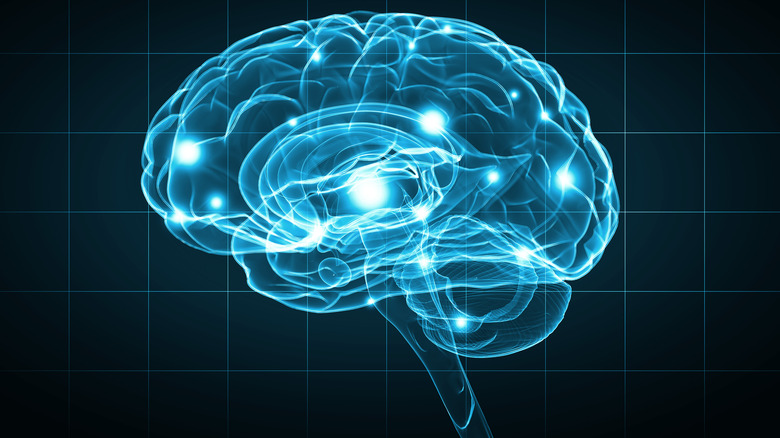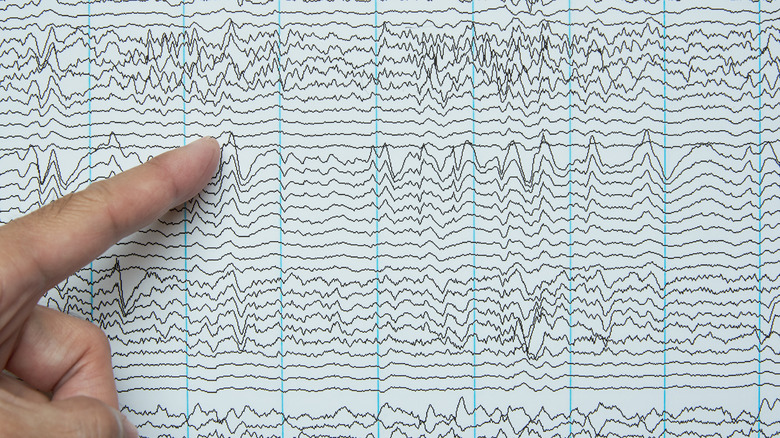What Happens To Your Brain When You Die
What happens to our brains after we die is a topic that fascinates many, but we don't know a whole lot about it. We know that when the heart stops beating, it stops pumping blood, and without blood or oxygen, the brain stops working (via WebMD). Patients who are clinically dead have no brain activity, but does that mean their brains stop working?
Experiences from people who have survived near-death experiences (NDEs) suggest something is going on in the brain after clinical death. They describe things that they shouldn't be aware of if they are dead. Some see a bright light or have what seems to be an out-of-body experience. Neuroscientists believe that there are two types of near-death experiences, and they both involve an awareness of time and other sensations, such as sounds. Researchers also think that the brain releases endorphins and/or dimethyltryptamine during an NDE, which can trigger euphoric experiences as brain cells begin to die, according to Newsweek. But NDEs tell only part of the story.
Research shows our brains are active after death
A 2018 study published in the Annals of Neurology looked at the brains of dying people via attached electrodes. They noted that the brain experiences a burst of activity in the minutes before it shuts down. In addition, scientists have conducted similar research on rats, where they noticed that brain activity actually increased after death, revealing "electrical signatures of consciousness" were greater than when they were alive (via Proceedings of the National Academy of Sciences). This suggests that something is going on in the brain.
Whatever is going on might take some time. It doesn't take long for the cerebral cortex (the thinking part of our brains) to shut down. After it stops, it triggers several cellular processes. These reactions are slow and eventually cause the brain to die, but it can take hours, according to Dr. Sam Parnia, director of critical care and resuscitation research at the NYU Langone School of Medicine (via LiveScience). Parnia is one of many who is studying the connection between the brain and consciousness during death in real-time to uncover the mysteries surrounding what happens to our brains when we die.


